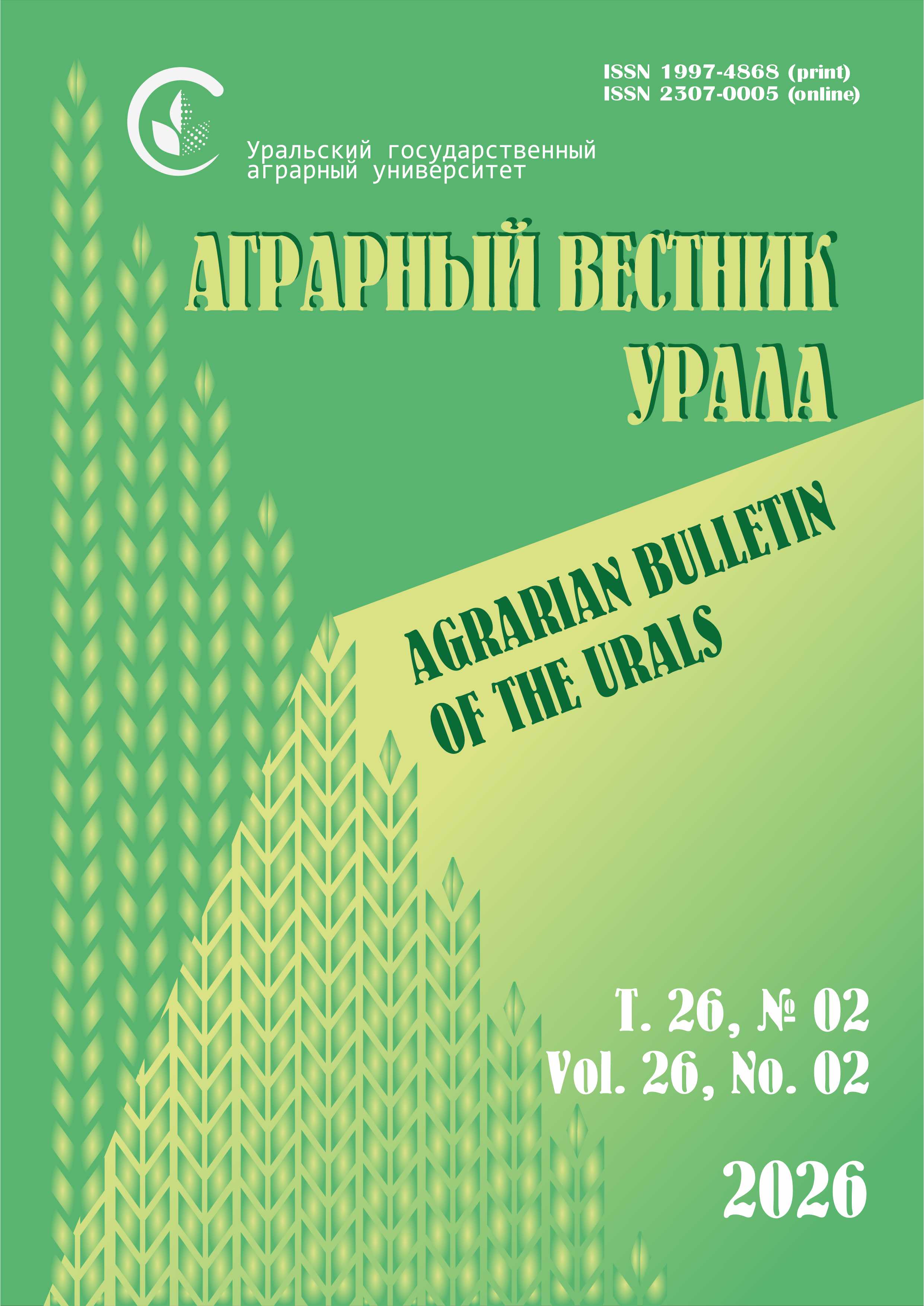Authors: A. S. Krasnoperov, candidate of veterinary sciences, senior researcher of the laboratory of immunology and pathobiochemistry, ORCID 0000-0001-5281-803X, AuthorID 655970, This email address is being protected from spambots. You need JavaScript enabled to view it.
S. V. Malkov, candidate of veterinary sciences, senior researcher of the laboratory of immunology and pathobiochemistry, ORCID 0000-0002-1961-4972, AuthorID 995351, This email address is being protected from spambots. You need JavaScript enabled to view it.
N. A. Vereshchak, doctor of veterinary sciences, leading researcher of the laboratory of immunology and pathobiochemistry, ORCID 0000-0001-5670-0717, AuthorID 287452, This email address is being protected from spambots. You need JavaScript enabled to view it.
A. P. Poryvaeva, doctor of biological sciences, leading researcher of the laboratory of viral diseases, ORCID 0000-0003-3224-1717, AuthorID 806423, This email address is being protected from spambots. You need JavaScript enabled to view it.
Ural Federal Agrarian Research Center of the Ural Branch of the Russian Academy of Sciences,Ekaterinburg, Russia
Abstract. Purpose – study the effect of enterosorbent on the immunological parameters of blood and the productivity of young cattle. Methods. The object of the study was newborn calves from 2 to 6 days of age (n = 54). Studies on the enterosorbent based on colloidal silicon dioxide (CSD) for calves with alimentary dyspepsia have been carried out. During the experiment, the clinical condition of the animals, the in crease in live body weight were evaluated, blood samples were taken for immunohematological studies. Results. In calves at 2–6 days of age, alimentary dyspepsia is accompanied by the development of endogenous intoxication of the body. Animals show leukocytosis – 16.60 ± 5.11×109/l; leukocyte shift to the left with anin crease in the number of adolescent and stab neutrophils – 1.41 ± 0.23×109/l; monocytes up to 1.21 ± 0.13x×109/l; circulating immune complexes (CIC) level in blood serum up to 202.4 ± 8.5 cu Under conditions of endogenous intoxication, the immunological protection of the organism was characterized by an increase in the number of phagocytic cells to 71 % of the total number of granulocytes. Clinical symptoms of endogenous intoxication in 86 % of cases disappeared by the 5th day ofthe use of enterosorbent CSD in the treatment regimen of calves with alimentary dyspepsia. This is associated with blockin gand weakening the inflammatory response in the gastrointestinal tract. The effect of enterosorbent CSD on the immunological parameters was expressed in a balanced stabilization of the processes of phagocytosis and immunogenesis. The trend towards normalization of immunological parameters was registered: the level of the CIC was significantly reduced to 97.5 ± 5.48 cu; the phagocytic activity (PA) of the neutrophilic cells was 50.1 ± 2.4 %. Treatment of animals according to the basic scheme approved by the farm turned out to be less effective. In calves that did not receive enterosorbent CSD, in 11 % of cases, clinical manifestations of endogenous intoxication were recorded up to and including 14 days. In these animals, the level of the CI Cremained high – 143.6 ± 8.57 cu, the voltage of phagocytic function was noted – 64.3 ± 7.6 % and the imbalance in the ratioof T/B-lymphocytes – 1.13 (normal 1.5–2.0). The effect of the CSD enterosorbent on the calves productivity was reflected in the fact that the rate of weight gain during the experiment was higher in the experimental group. At 4 months, their weight was149.17 ± 13.57 kg, while in the control group and the comparison group – 135.00 ± 5.00 and 130.00 ± 22.73 kg, respectively. Scientific novelty. Alimentary dyspepsia causes the development of endogenous intoxication in the body of newborn calves.The lack of the rapeutic measures leads to a long recovery period and a decrease in productivity.
Keywords: calves, immunology, dyspepsia, endotoxicosis, enterosorbent, colloidal silicon dioxide, productivity.
Download the full text of the article
For citation: Krasnoperov A. S., Malkov S. V., Vereshchak N. A., Poryvaeva A. P. Enterosorbent for endotoxicosis as a factorin fluencing the development of young cattle // Agrarian Bulletin of the Urals. 2019. No. 11 (190). Pp. 66‒70. DOI: 10.32417/article_5dcd861e566fb0.98677225. (In Russian.)












